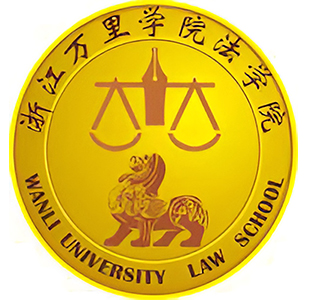
The School of Law was founded in 1999. Since its establishment, the School has adhered to the university motto of “Strive, Persevere, Achieve”, and has made great progress in talent cultivation, scientific research, social service, and cultural inheritance and innovation. At present, the School offers four majors: Law, Social Work, E-commerce and Law, and Intellectual Property. Among them, the major of Law is a Key Major of Ningbo and a Provincial-Level First-Class Major; the disciplines of Economic Law and Civil & Commercial Law are Key Disciplines of Ningbo.
There are 54 faculty members in the School, among whom 44 are full-time teachers (10 professors, 10 associate professors, 22 PhDs), 34 are “Double-Qualified” teachers with both teacher and lawyer qualifications, and 11 are teachers with overseas academic backgrounds. Many teachers of the School are serving as experts on the local legislation of Zhejiang Province, experts on the Think Tank of Social Construction Committee of Zhejiang Province, experts on Local Legislation of Ningbo Municipal Government, expert consultants of Social Construction Committee of Ningbo Municipal Government, legal consultants of Ningbo Municipal Government, arbitrators of Ningbo City, arbitrators of Chinese maritime affairs, etc. In addition, the School has a team of part-time tutors with rich practical experience.
The School is rich in teaching resources. It has the Experimental Teaching Demonstration Center of Zhejiang Province—Law Training Center, which consists of Law Simulation Training Studio (Mock Court, Mock Arbitration Court, Law Digital Simulation Training Room, Case Screening Room, Multimedia Training Room), Law Clinic, E-commerce and Law Comprehensive Skills Training Room, Public Utility Management Skills Training Room. In addition, dozens of practical teaching bases have been set up in cooperation with relevant organizations and units inside and outside the province.

The School enrolls students from all over the country, with more than 1,600 students currently enrolled. The School adheres to the student-oriented principle, actively promotes the education and teaching reform, explores new teaching modes, highlights the characteristics of “Moral Education, Practical Education, and Collaborative Education”, and provides students with comprehensive education of knowledge, ability, and quality. In recent years, the School has been making steady progress in the quality of talent cultivation, with the pass rate of Postgraduate Entrance Examination, the pass rate of Legal Professional Qualification Examination, and the acceptance rate of Civil Servants and Selected Graduates increasing continuously, of which the pass rate of Civil Servant Examination is among the highest in similar schools of the province, and the rate of graduates’ independent entrepreneurship is ranked in the top three law schools in the province.
Taking “serving society through knowledge” as its mission and making full use of its own advantages and characteristics, the School endeavors to provide diversified, high-quality services for the regional rule of law and social governance, achieving good social effects. At present, a number of research bases and research centers have been established in the School of Law, such as the Civil Affairs Policy Theory Research Base of the Ministry of Civil Affairs (cooperative unit), Zhejiang Grass-Roots Legal Workers College, Ningbo Administrative Rule of Law Research Base, Ningbo Local Legislation Research Base, Ningbo Lawyer Development Research Center, Ningbo Wanli Counterpart Collaboration and Anti-Poverty Research Institute, Ningbo Intellectual Property Institute, the Maritime Law Research Institute of Zhejiang Provincial Law Society, the Risk Assessment Research Institute of Ningbo Law Society, the Marriage and Family Law Research Institute of Ningbo Law Society. Relying on these platforms, the School carries out in-depth cooperation between government, industry, academia and research, and takes the initiative to integrate itself into and offer its service to the local economic development and the construction of the rule of law.
Facing the future, the School of Law will uphold the motto of “Knowledge and Practice; Virtue and Law”, benchmark itself against the standards of new liberal arts and first-class disciplines and majors, and take high-quality development as its theme, reform as its driving force, and innovation as the guide, opening up to promote development and striving to build a high-quality, application-oriented and open law school.